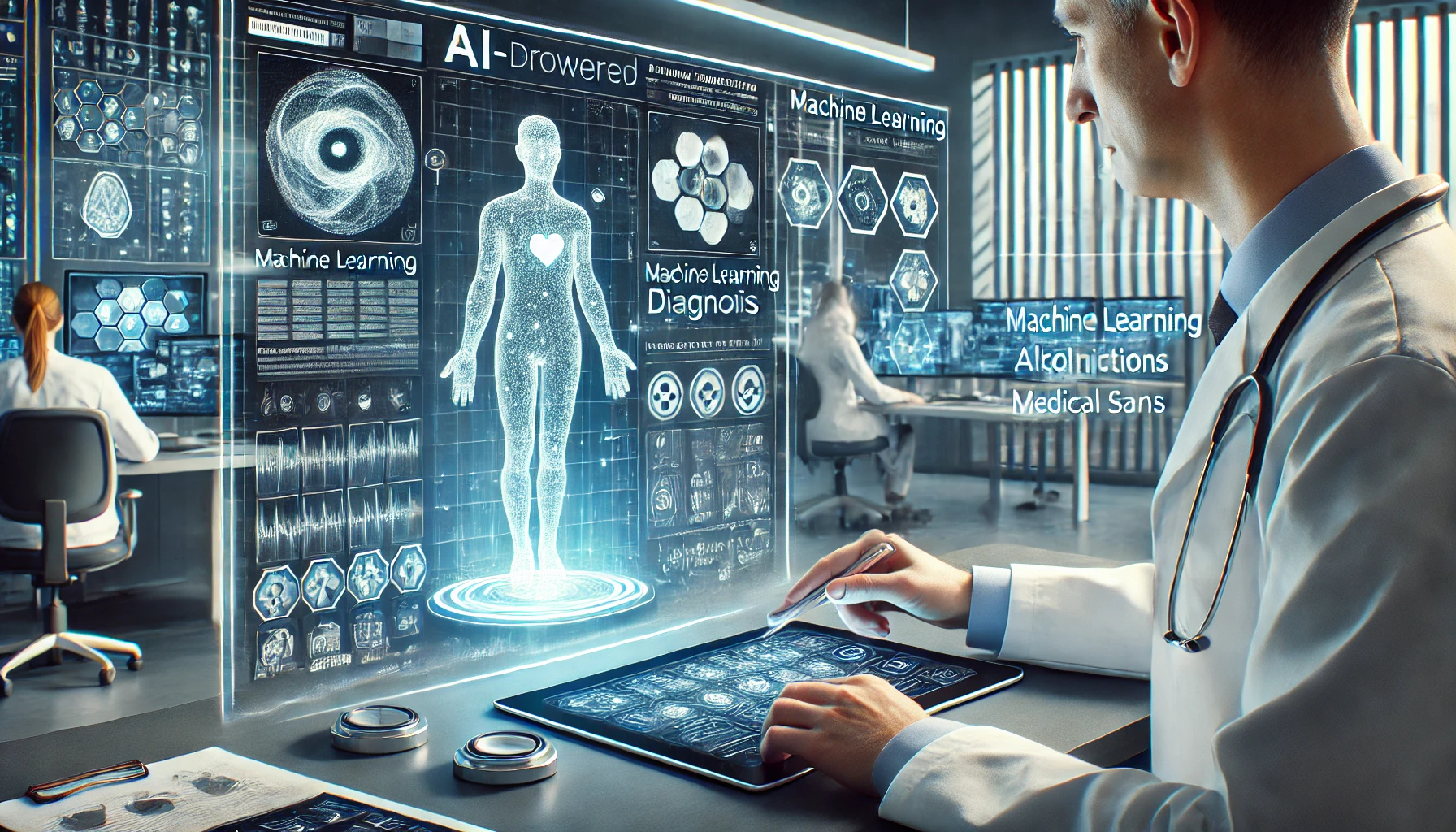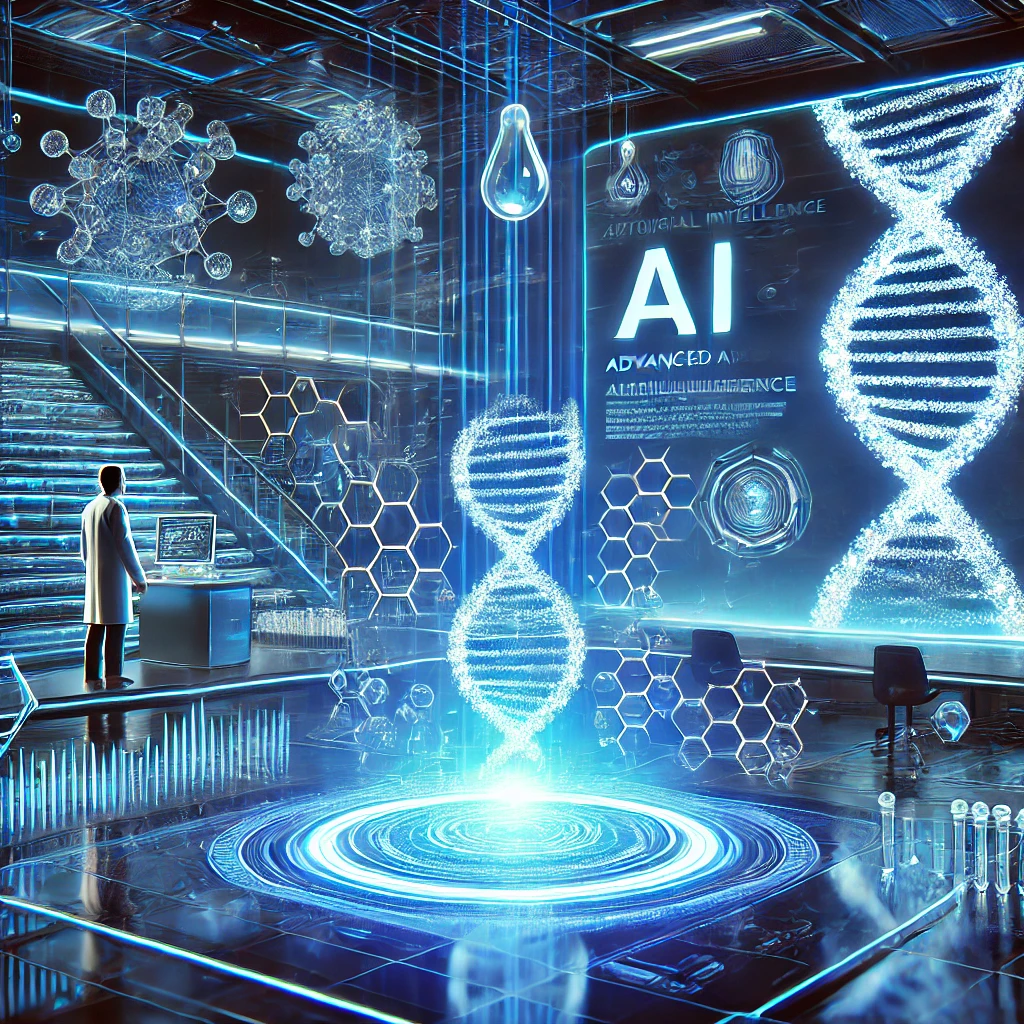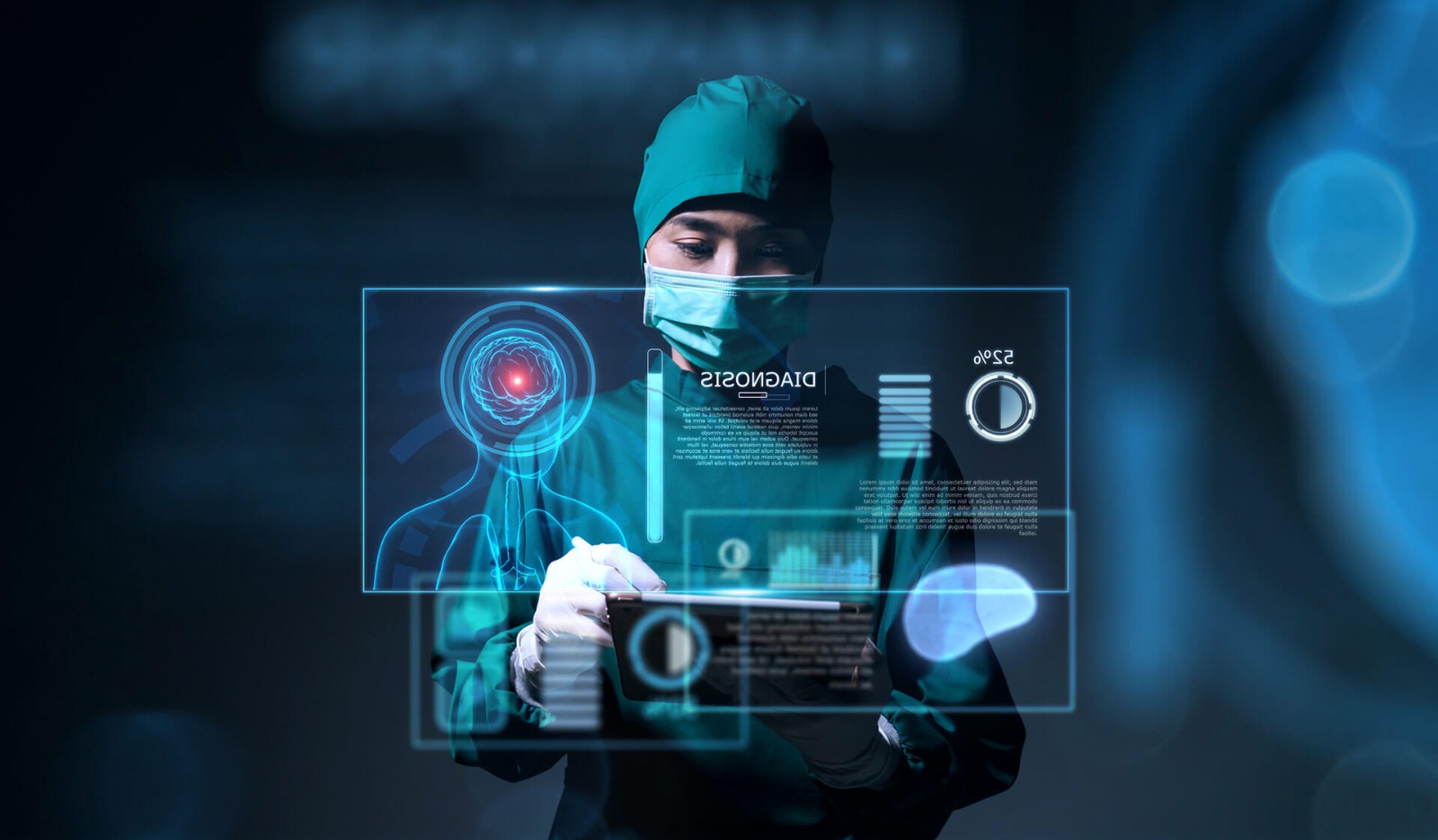“The art of medicine consists in amusing the patient while nature cures the disease.” – Voltaire.
But what if technology could do more than amuse? What if artificial intelligence (AI) could redefine medicine itself—detecting diseases earlier, personalizing treatments, and optimizing patient care in ways once thought impossible? Welcome to the new frontier of AI in healthcare—a landscape where machine learning (ML), natural language processing (NLP), and predictive analytics are revolutionizing medicine.
AI: The Game-Changer in Modern Healthcare
Imagine a world where AI-powered algorithms analyze vast amounts of clinical data in real time, identifying diseases with pinpoint accuracy. From early cancer detection in radiology scans to predictive analytics in electronic health records (EHRs), AI is transforming healthcare at an unprecedented pace.
The numbers don’t lie—Statista estimates that the AI healthcare market will skyrocket from $11 billion in 2021 to $187 billion by 2030.
AI’s Role in Diagnostics and Treatment
- AI-powered imaging: AI can interpret brain scans with twice the accuracy of professionals, identifying strokes and their time of onset.
- Bone fracture detection: AI can catch breaks that human doctors often miss, improving patient outcomes.
- Predictive models: AI can forecast health outcomes, ensuring timely intervention and better patient management.
Machine Learning: Decoding the Language of Medicine
Machine learning (ML) is the backbone of AI-driven healthcare. It enables hospitals to:
- Predict patient deterioration before symptoms become critical.
- Customize treatments based on individual genetic profiles (precision medicine).
- Reduce misdiagnoses by analyzing medical images with higher accuracy than human specialists.
For instance, Google’s DeepMind AI demonstrated an ability to diagnose eye diseases from retinal scans with the accuracy of world-class ophthalmologists. ML-driven AI is already making waves in drug discovery, robotic surgeries, and automated patient monitoring.
Natural Language Processing: Making Sense of Medical Data
Medical data is a goldmine, but 80% of it is unstructured, trapped in physician notes, patient histories, and clinical trial reports. Natural language processing (NLP) unlocks this treasure trove by:
- Converting doctor-patient conversations into actionable insights.
- Automating medical coding for faster insurance processing.
- Enhancing clinical documentation to reduce physician burnout.
IBM Watson, one of the pioneers in AI-powered medicine, leveraged NLP to recommend cancer treatments by scanning millions of research papers in seconds. AI is no longer just assisting doctors—it’s becoming their indispensable digital partner.
Predictive Analytics: Forecasting Health Outcomes
Prevention is better than cure, and predictive analytics makes it a reality. By analyzing real-time patient data, AI can forecast:
- Disease outbreaks and public health crises.
- Potential complications in high-risk patients.
- Hospital readmission rates, helping reduce strain on healthcare systems.
AI in Emergency Care
- AI models can assess ambulance needs, predicting which patients require urgent hospital transportation.
- AI-driven emergency triage ensures that limited medical resources are utilized effectively.
Hospitals are leveraging predictive models to allocate resources efficiently, ensuring that critical care is available where and when it’s needed most—especially crucial during pandemics and emergencies.
AI-Powered Clinical Chatbots: Aiding Healthcare Decisions
- AI chatbots can assist doctors by answering medical queries based on vast medical datasets.
- Retrieval-augmented generation (RAG) chatbots outperform traditional AI models in clinical decision-making.
- AI-powered digital patient platforms like Huma reduce hospital readmission rates and improve patient engagement.
The Challenges of AI in Healthcare: What’s Holding Us Back?
Despite its immense potential, AI adoption in healthcare faces hurdles:
- Data Privacy & Security – Handling sensitive patient information comes with ethical and legal challenges.
- Integration with Existing IT Systems – Most hospitals still struggle with outdated EHR systems.
- Trust & Transparency – Many physicians remain skeptical about AI-driven diagnoses.
To overcome these, regulatory frameworks and AI ethics guidelines must evolve alongside technology. Organizations like Erudites Solutions are at the forefront, building secure, explainable AI models that integrate seamlessly with existing healthcare systems.
The Future: AI’s Role in a Sustainable & Equitable Healthcare System
AI isn’t just about efficiency—it’s about creating a sustainable healthcare ecosystem. Future AI advancements will:
- Enable remote patient monitoring through wearables, reducing hospital visits.
- Improve mental health accessibility using AI-driven chatbots like MindWell.
- Democratize healthcare by bringing low-cost AI diagnostics to underprivileged areas.
- Enhance early disease detection using AI to identify over 1,000 diseases before symptoms appear.
- Improve emergency response systems, ensuring faster and more effective medical care.
As AI continues to evolve, healthcare will shift from reactive to proactive, from generalized to personalized, and from fragmented to fully integrated.
Final Thoughts: Embracing the AI Healthcare Revolution
AI in healthcare is not a distant dream—it’s happening now. From early disease detection to predictive analytics, AI is reshaping medicine in ways never before imagined.
But successful AI adoption isn’t just about technology; it’s about bridging the gap between innovation and human-centric care. As Erudites Solutions leads the charge in AI-powered healthcare solutions, one thing is clear—the future of medicine isn’t just about doctors and hospitals; it’s about AI working hand-in-hand with them to build a healthier world.



